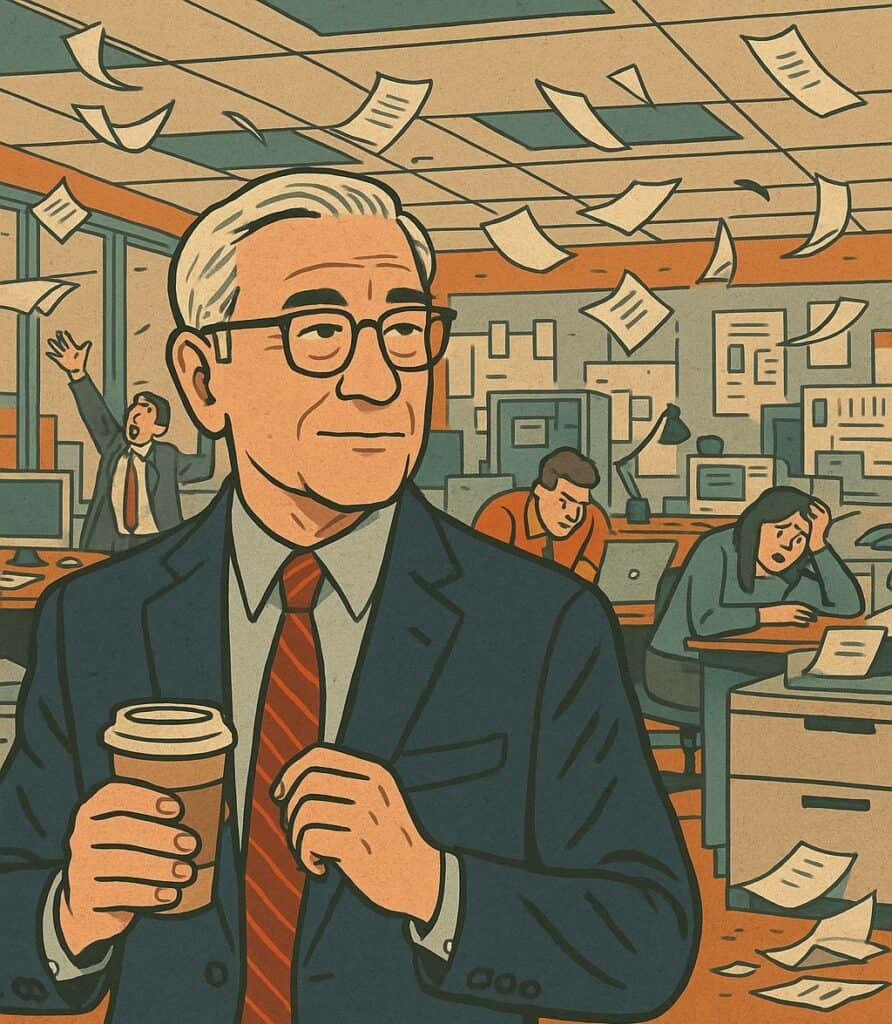
If it has been more than 10 years since I saw a movie, it might as well be brand new to me. So, when my daughter recently recommended The Intern, I gave it another watch — and I am glad I did.
I had already rated it an 8 back when it came out, which is higher than its 7.1 score on IMDb. It did not take long to remember why. It is not just a charming film with great performances. It is a great movie about the business world — about startup chaos, leadership choices, generational wisdom, and the real weight of trying to balance it all.
Rewatching it through the lens of a marketer, I saw even more layers worth unpacking. Here are a few timeless lessons The Intern still teaches us in 2025.
1. Do Not Underestimate Experience: Ageism Is Bad for Business
In a youth-obsessed startup culture, it is easy to overlook what older professionals bring to the table. Robert De Niro’s character, Ben, does not just fill a desk. He brings steadiness, emotional intelligence, and practical problem-solving.
Age diversity is not just a checkbox. It is a strategic advantage.
“Experience never gets old. It gets sharper.”
2. Delegating Is Smart, But Abdicating Is Not
Anne Hathaway’s character, Jules, is stretched thin because she has not figured out what to let go of. Most of use have been there.
We glorify hustle culture, but if everything runs through one person, nothing scales. Great leaders know how to delegate with intention, while still remaining present.
3. Culture Does Not Run on Autopilot
The startup Jules runs has all the trappings of a modern culture. Open office layout. Casual dress. Startup buzz. But the emotional culture is fraying. Why? Because when the leader is overwhelmed, the culture goes untended.
Culture is built moment by moment. And marketers know it is part of your brand story too.
“A great company culture doesn’t happen by accident. You get it by showing up.”
4. Work-Life Balance Is a Leadership Responsibility
Jules is burning the candle at both ends, and the impact on her personal life is real. This is not just a subplot. It is a business problem.
Burned-out leaders make reactive decisions, miss strategic pivots, and lose good people. Balance is not a luxury. It is part of sustainable leadership.
5. Mentorship Should Go Both Ways
Ben becomes a quiet mentor to many of the younger team members, but he also learns from them. It is the perfect example of reverse mentorship. Older professionals offer life experience, while younger teammates share fresh skills and perspectives.
Marketing teams especially benefit from this synergy. Tools are evolving fast, but timeless principles still apply.
“Innovation and experience are not rivals. They are partners.”
6. Empathy Is a Superpower
Ben does not push himself into meetings or shout for attention. He listens. He supports. He notices what others miss.
In marketing and in leadership, empathy builds trust faster than any slogan. It is how we connect with customers, coworkers, and ourselves.
7. Business Is Personal and That Is Okay
This movie works because it reminds us that people bring their whole selves to work — stress, dreams, insecurities, relationships, and all. You can run a tight business and still be a kind, thoughtful human being. In fact, that is probably the only way to succeed long term.
So whether you’re leading a startup, managing a team, or just trying to market with more heart, give The Intern a rewatch. You might find it speaks to you more now than it did back then.
